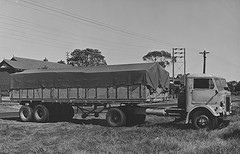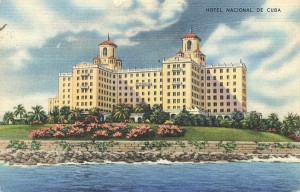FXC tells the story of her Havana meeting with Straka. She arrived at his hotel on June 5, 1946, eager to receive the final chapter of Ship of Theseus in person. After waiting in the bar as directed by the hotel staff, FXC demanded to go to his room where she witnessed the aftermath of an assault. Looking out the window, she saw a body loaded into a truck that promptly drove away. Instead of pursuing the vehicle, FXC collected the scattered papers — a decision she’s confident with but still wonders what she could have otherwise done.
In the margins, Jen and Eric debate the truth behind this story and what it says about the identity of Straka. Eric notes in pencil that Moody rejects the story altogether. He explains to Jen there are several reasons why FXC would fabricate it: “she was schizophrenic, it was disinformation to throw people off VMS’s trail, FXC was VMS himself” or any combination of the three.
This story represents one of the main crossroads of one’s interpretation of Straka. Depending on how truthfully one takes this story or how crafty one believes Straka to be, VMS’s identity varies significantly. Any physical evidence to prove or disprove this story is therefore crucial to a scholar’s understanding of VMS. Unfortunately, Eric could not make sense of any of the evidence he’s found. Two museums claim to have the same typewriter and when Eric traveled to an auction to see a photograph of the hotel room, he couldn’t get a good enough look.

FXC watched a truck carry the “body in a blanket” away. Photo by Flickr user, Philip Schubert, under creative commons licensing. https://flic.kr/p/dna8B9
Jen clarifies that FXC’s account only describes “a body in a blanket.” Therefore, that body could or could not have been VMS — although Eric points out that whether or not VMS physically died that day, no one has produced evidence of his life afterwards.
This important story rests heavily on detail — any discovery could drastically change the identity of Straka.

